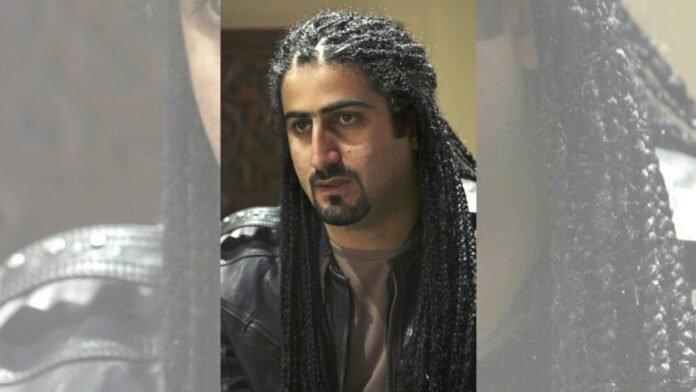France, a nation that has long been grappling with issues of terrorism and radicalization, finds itself once again at the center of controversy after a high-profile deportation order. Omar bin Laden, the son of the notorious al-Qaeda leader Osama bin Laden, has been ordered to leave French territory after allegedly making online posts that were viewed as an “apology for terrorism.” The decision has sparked heated debates surrounding freedom of expression, national security, and the ongoing fight against radical ideologies.
Background: Omar bin Laden’s Life and Public Persona
Omar bin Laden, one of Osama bin Laden’s many children, has spent much of his life distancing himself from his father’s extremist ideology. Though he shares the infamous last name, Omar has repeatedly condemned the actions of his father, expressing a desire for peace and a more normalized life. In recent years, Omar, who lived in several countries across Europe and the Middle East, had developed a modest public presence as an artist and author, trying to carve out a life separate from the shadow of his father’s legacy.
Despite his attempts to distance himself from his father’s past, Omar’s association with Osama bin Laden has always loomed large. His critics argue that his public statements, while moderate at times, have sometimes veered into ambiguous territory when discussing terrorism, particularly related to his father’s role in global jihad.
The Controversial Social Media Post
The incident that led to Omar bin Laden’s deportation revolves around a social media post he made, which French authorities interpreted as an “apology for terrorism.” The post reportedly included remarks that were seen as sympathetic to extremist actions, although specific details of the content remain vague. French intelligence agencies, known for their aggressive counter-terrorism stance, swiftly flagged the post as promoting dangerous ideologies.
In response, the French Interior Ministry issued a deportation order, citing laws that prohibit the glorification or apology for terrorism. These laws were strengthened after a series of devastating terrorist attacks in France over the past decade, including the 2015 Charlie Hebdo massacre and the 2016 Nice truck attack. French President Emmanuel Macron has been at the forefront of efforts to clamp down on extremism, including cracking down on Islamist radicalism within the country. This case fits within a broader policy to expel foreign nationals who are perceived to pose a risk to national security.
France’s Stance on Radicalization and Free Speech
France’s policy on radicalization, especially when it comes to public discourse around terrorism, is stringent. The country’s anti-terrorism laws make it illegal to make any public statements that are seen as glorifying or excusing terrorism. The rationale behind these laws stems from the belief that even indirect support for such ideologies can fuel radicalization and provide a gateway for vulnerable individuals to embrace extremist views.
This hardline stance, however, often puts France in difficult positions regarding freedom of expression. Critics argue that France’s laws risk overreach, potentially punishing people for what could be perceived as personal opinions rather than actual incitements to violence. This debate is particularly charged given France’s complex relationship with its Muslim population and the global context of anti-terrorism efforts.
Omar bin Laden’s case falls squarely within this tension. While his post was flagged for glorifying terrorism, some human rights groups have cautioned against hasty expulsions, arguing that such measures could unjustly infringe on free speech. Defenders of Omar bin Laden point to his years of distancing himself from his father’s radicalism as proof that his comments, though possibly ill-phrased, do not reflect support for terrorism.
Public and Political Reaction
The French public, still haunted by recent terrorist attacks, largely supports the government’s zero-tolerance approach to any form of apology for terrorism. Many see the deportation of Omar bin Laden as a necessary step in maintaining the country’s security and ensuring that no space is given for extremism to flourish, even indirectly. Political leaders across the spectrum have voiced their approval of the decision, underscoring France’s commitment to combating radicalism in all its forms.
However, civil liberties organizations have voiced concerns about the precedent set by this case. They argue that such actions could contribute to a climate of fear and suspicion, particularly for those in France’s Muslim community, who may feel targeted by anti-terrorism laws that are perceived as disproportionately affecting them. The deportation order, in this view, could further alienate sections of society, complicating efforts to build trust and social cohesion.
What’s Next for Omar bin Laden?
Omar bin Laden is expected to leave France within weeks, with several reports suggesting he may seek refuge in another European country. His future remains uncertain, as his father’s legacy continues to cast a long shadow over his life. While Omar has tried to forge a different path, his recent troubles with French authorities highlight the difficulty he faces in truly separating himself from his father’s infamy.
As for France, this incident underscores the nation’s firm resolve to prevent any form of radical ideology from taking root on its soil. The balance between security and civil liberties will continue to be a focal point of debate as the country navigates its ongoing fight against terrorism.

